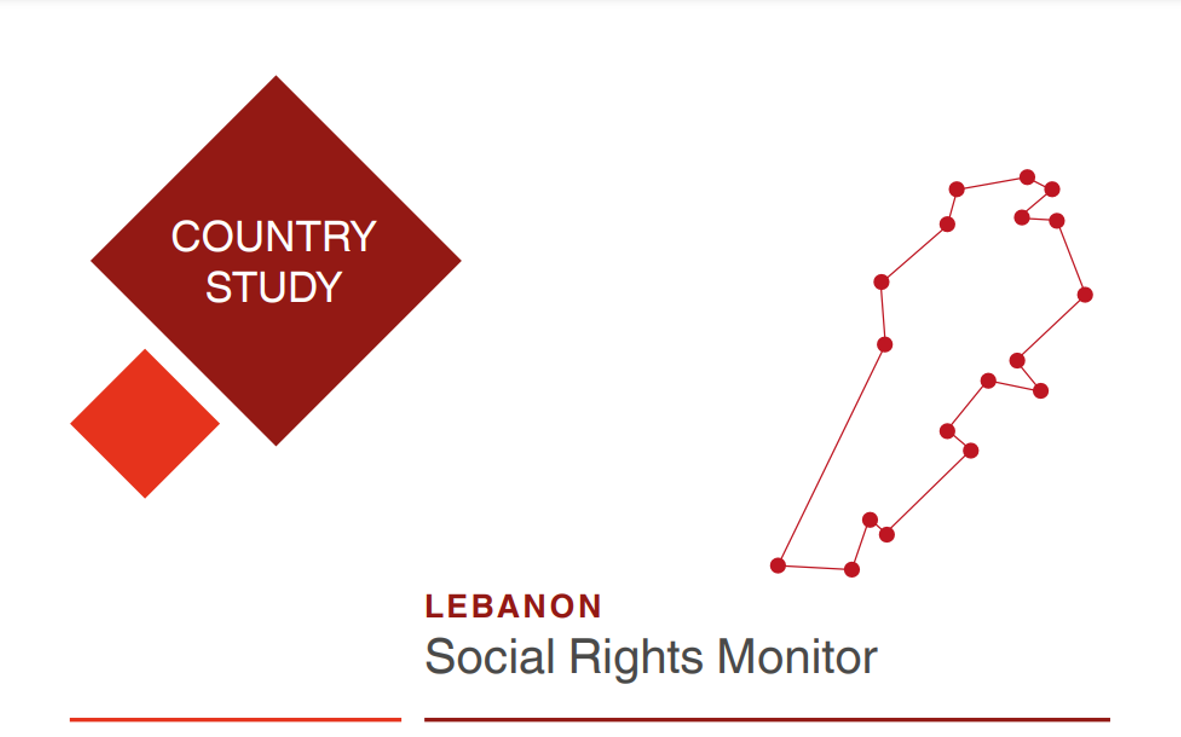
Regional and Country Reports developed through Social Rights Monitor tool - Lebanon
Introduction
This report assesses the overall situation in terms of social protection, decent work and civil society space in Lebanon. In particular, it tracks the progress that has been made since the implementation of the European Neighborhood policy. Relations
with the European Union (EU) started in 2002 with the adoption of the Association Agreement (which came into force in 2006), which aims at contributing to the political and economic development of Lebanon while ensuring stability and democracy in the country.
The revised European Neighborhood policy of 2015 puts four main domains at the heart of the EU’s cooperation with its Eastern and Southern Neighbours, namely (1) good governance, democracy, rule of law and human rights; (2) economic development for stabilization; (3) security and (4) migration and mobility. It is within this framework
that the EU and Lebanon agreed on the Partnership Priorities and EU-Lebanon Compact in November 2016. The following more specific joint priorities were also adopted: (1) Security and countering terrorism, (2) Governance and rule of law, (3) Fostering growth and job opportunities, (4) Migration and mobility. The implementation of the Partnership Priorities and the Compact agreed between Lebanon and
the EU should be based on a sound assessment of the current situation.
Recent publications

